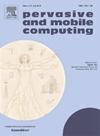通过双向信任评估实现物联网网络中的能量感知安全路由方案
IF 3.5
3区 计算机科学
Q2 COMPUTER SCIENCE, INFORMATION SYSTEMS
引用次数: 0
摘要
技术的飞速发展导致连接到物联网(IoT)网络的设备激增,给能源管理和安全数据通信都带来了挑战。除了能源限制,物联网网络还面临着恶意节点的威胁,从而危及通信安全。为了应对这些挑战,我们为物联网网络提出了一种通过双向信任评估(ERTWT)的能量感知安全路由方案。该方案通过计算基于能量信任、直接信任和间接信任的信任值,增强网络对各种攻击的防护能力。该方案旨在根据雾节点的能量可用性和可信度指标动态选择路由,从而提高数据传输效率。由于信任管理可以保证隐私和安全,ERTWT 允许服务请求者和服务提供者同时检查对方的安全性和可靠性。此外,我们还采用了生成流网络(GFlowNets)来预测节点的可用能量水平,以便优化使用。我们将所提出的方案与几种先进的能量感知路由协议和基于信任的路由协议进行了比较。评估结果表明,ERTWT 能更有效地检测恶意节点,同时实现更高的能效和数据传输速率。本文章由计算机程序翻译,如有差异,请以英文原文为准。
An energy-aware secure routing scheme in internet of things networks via two-way trust evaluation
The rapid advancement of technology has led to the proliferation of devices connected to the Internet of Things (IoT) networks, bringing forth challenges in both energy management and secure data communication. In addition to energy constraints, IoT networks face threats from malicious nodes, which jeopardize the security of communications. To address these challenges, we propose an Energy-aware secure Routing scheme via Two-Way Trust evaluation (ERTWT) for IoT networks. This scheme enhances network protection against various attacks by calculating trust values based on energy trust, direct trust, and indirect trust. The scheme aims to enhance the efficiency of data transmission by dynamically selecting routes based on both energy availability and trustworthiness metrics of fog nodes. Since trust management can guarantee privacy and security, ERTWT allows the service requester and the service provider to check each other's safety and reliability at the same time. In addition, we implement Generative Flow Networks (GFlowNets) to predict the energy levels available in nodes in order to use them optimally. The proposed scheme has been compared with several advanced energy-aware and trust-based routing protocols. Evaluation results show that ERTWT more effectively detects malicious nodes while achieving better energy efficiency and data transmission rates.
求助全文
通过发布文献求助,成功后即可免费获取论文全文。
去求助
来源期刊

Pervasive and Mobile Computing
COMPUTER SCIENCE, INFORMATION SYSTEMS-TELECOMMUNICATIONS
CiteScore
7.70
自引率
2.30%
发文量
80
审稿时长
68 days
期刊介绍:
As envisioned by Mark Weiser as early as 1991, pervasive computing systems and services have truly become integral parts of our daily lives. Tremendous developments in a multitude of technologies ranging from personalized and embedded smart devices (e.g., smartphones, sensors, wearables, IoTs, etc.) to ubiquitous connectivity, via a variety of wireless mobile communications and cognitive networking infrastructures, to advanced computing techniques (including edge, fog and cloud) and user-friendly middleware services and platforms have significantly contributed to the unprecedented advances in pervasive and mobile computing. Cutting-edge applications and paradigms have evolved, such as cyber-physical systems and smart environments (e.g., smart city, smart energy, smart transportation, smart healthcare, etc.) that also involve human in the loop through social interactions and participatory and/or mobile crowd sensing, for example. The goal of pervasive computing systems is to improve human experience and quality of life, without explicit awareness of the underlying communications and computing technologies.
The Pervasive and Mobile Computing Journal (PMC) is a high-impact, peer-reviewed technical journal that publishes high-quality scientific articles spanning theory and practice, and covering all aspects of pervasive and mobile computing and systems.
 求助内容:
求助内容: 应助结果提醒方式:
应助结果提醒方式:


